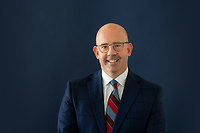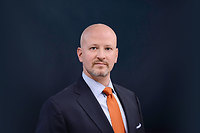In a decision that will have a lasting impact on employees of faith-based schools and religious institutions, the U.S. Supreme Court held that the First Amendment’s “Religion Clauses” foreclose employment discrimination claims by lay teachers whose teaching responsibilities include religious education. The Court’s 7-2 opinion in Our Lady of Guadalupe School v. Morrissey-Berru, written by Justice Samuel Alito, represents a considerable expansion of the “ministerial exception” to laws that govern the relationship between a religious institution and “key employees” that the Court recognized in its 2012 decision, Hosanna-Tabor Evangelical Lutheran Church and School v. EEOC. In the wake of Morrissey-Berru, the ministerial exception includes any employee of a school with a religious mission who has been entrusted “with the responsibility of educating and forming students in the faith” of that religion.
Morrissey-Berru arose from separate lawsuits by two elementary school teachers at Catholic schools in Los Angeles. Agnes Morrissey-Berru taught at Our Lady of Guadalupe School for sixteen years before the school failed to renew her contract. Morrissey-Berru sued in federal court, claiming she was the victim of age discrimination. The district court dismissed her case on a motion for summary judgment, agreeing with the school that the ministerial exception applied. The second plaintiff, Kristen Biel, sued St. James School when the school failed to renew her contract after she disclosed that she was treating for breast cancer. Biel claimed that the school had discriminated against her because she had cancer. The district court agreed with the school that Biel’s suit was foreclosed by the ministerial exception and granted summary judgment. The U.S. Court of Appeals for the 9th Circuit reversed the lower courts finding that the ministerial exception applies to employees in religious leadership roles, whereas Morrisey-Berru and Biel were not “ministers,” had limited formal religious training, did not hold themselves out as religious leaders, and, essentially taught religion from a textbook.
Reversing the 9th Circuit, the Court’s majority rejected the premise that Hosanna-Tabor created a “rigid formula” for application of the ministerial exception that requires evidence that the employee of a religious institution has the title “minister” (or its equivalent); has had formal religious training followed by a process of commission; has held him/herself out as a minister and accepted a “call to religious service”; and has had a role in conveying the religious institution’s message and implementing its mission. Rather, the Court held that a “variety of factors may be important” in determining whether the ministerial exception applies to an employee, but “[w]hat matters, at bottom … is what an employee does.”
Regarding Morrissey-Berru and Biel, the Court noted that while both were lay educators, “they were members of the school staff who were entrusted most directly with the responsibility of educating their students in the faith” and who were “also expected to guide their students … toward the goal of living their lives in accordance with the faith.” In this respect, the Court ruled that “[w]hen a school with a religious mission entrusts a teacher with the responsibility of educating and forming students in the faith, judicial intervention into disputes between the school and teacher threatens the school’s independence that the First Amendment does not allow.”
Morrissey-Berru will likely to be hailed as a “win” for religious liberty and the right of religious institutions to be free of “government interference.” Conversely, the Court’s opinion will be criticized as a setback to employee rights – particularly the rights of employees of religious institutions whose duties include furthering the institution’s “religious mission,” but who themselves do not practice their employer’s religion. Indeed, Justice Sonia Sotomayor, in a dissent joined by Justice Ruth Bader Ginsburg, cautioned that the majority’s decision opens the door for church employees to be terminated “for any reason” under the guise of ministerial exception even if the employees “taught primarily secular subjects, lacked substantial religious titles and training, and were not even required” to be members of the church, so long as the church/employer “determines that an employee’s ‘duties’ are ‘vital’” to the church’s mission. Justice Sotomayor warned of “grave consequences” of Morrissey-Berru “on the rights of countless coaches, camp counselors, nurses, social-service workers, in-house lawyers, media-relations personnel, and many others who work for religious institutions” who could be subject to discrimination “for reasons completely irrelevant to their employers’ religious tenets.”
Should you have any questions regarding this issue, please contact any member of our Employment Practices Liability Defense Group.
Attorneys
- Ft. Wayne
- Cleveland
- Columbus
- Cincinnati
- Ft. Mitchell
- Indianapolis






